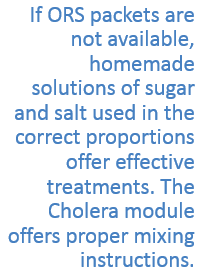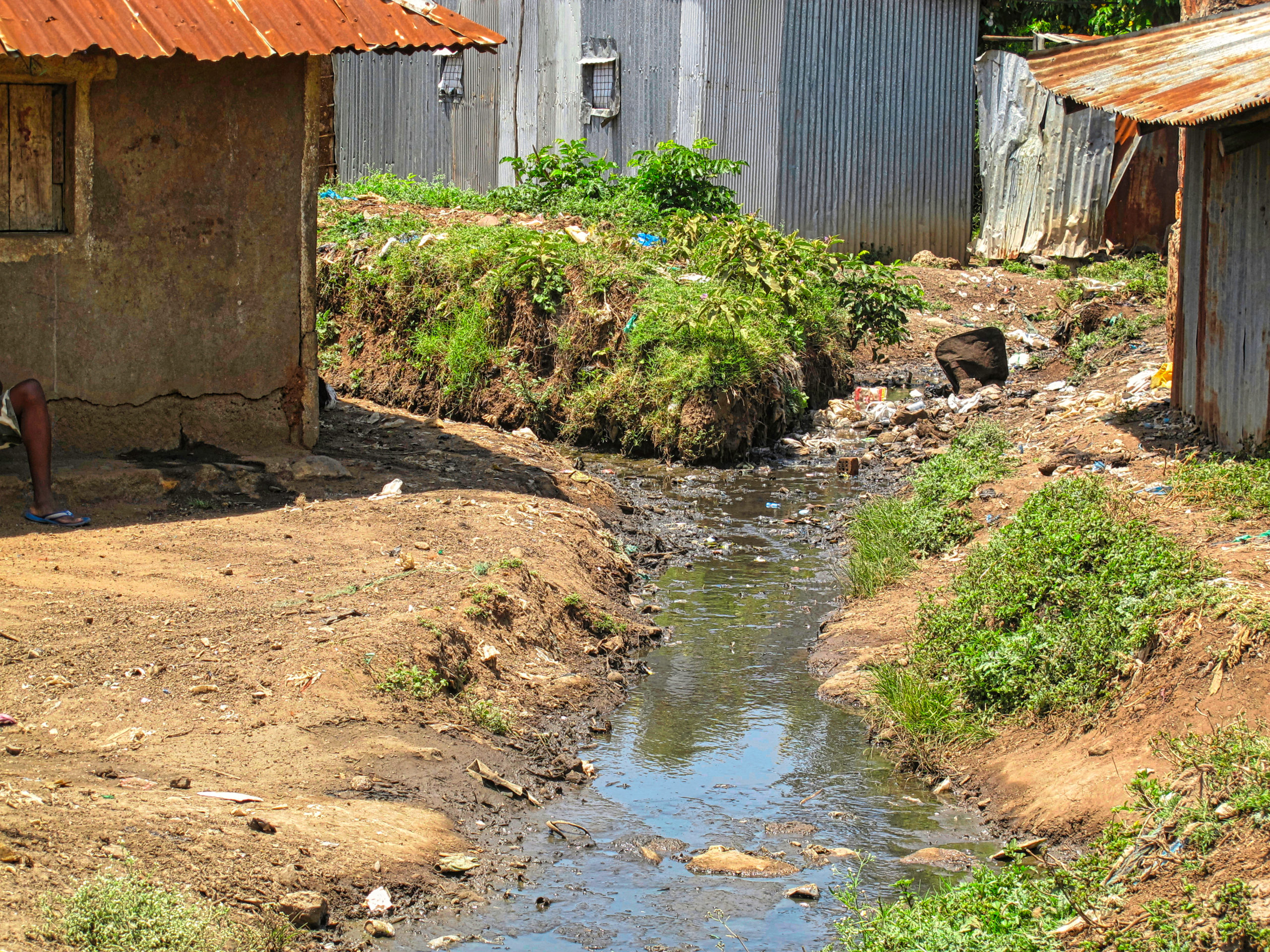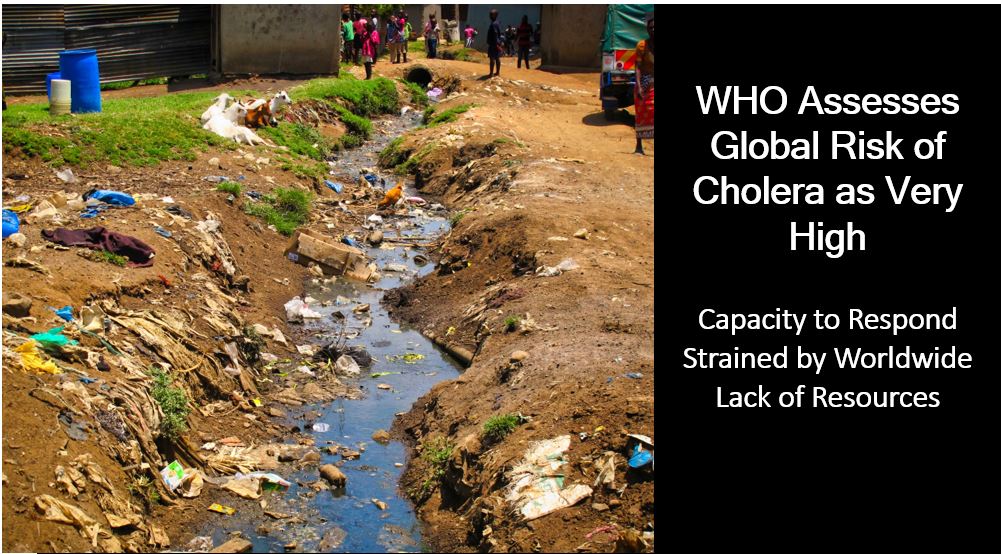By Allison Kozicharow; Edited by Elizabeth Fine

In a single month, the global cholera outlook has deteriorated as 24 countries face the threat of this life-threatening disease. The latest report from the World Health Organization (WHO) charts the rapid spread of cholera into southeast Africa and the greater Horn of Africa.
The ability to respond to multiple and simultaneous outbreaks, WHO adds, is being hampered by shortages of the oral cholera vaccine and other necessary supplies and by overburdened health agencies having to deal with multiple disease outbreaks and other health emergencies at the same time. In addition WHO states that circumstances have worsened because many of the affected countries are facing humanitarian crises with fragile health systems and the effects of climate change.
 Why does cholera — a disease that has been treated and controlled successfully since the 1800s — continue to plague populations around the world? The answers are civil unrest, natural disasters and a general lack of knowledge about cholera. These conditions affect low-resource communities already isolated and underserved. The knowledge factor is where WiRED comes in.
Why does cholera — a disease that has been treated and controlled successfully since the 1800s — continue to plague populations around the world? The answers are civil unrest, natural disasters and a general lack of knowledge about cholera. These conditions affect low-resource communities already isolated and underserved. The knowledge factor is where WiRED comes in.
 WiRED International offers a cholera module for general audiences in English, French and Spanish. The course describes cholera and its prevention, transmission, symptoms, treatment and complications. Also, the module contains a technical section designed for medical professionals that gives information about cholera treatment and vaccines.
WiRED International offers a cholera module for general audiences in English, French and Spanish. The course describes cholera and its prevention, transmission, symptoms, treatment and complications. Also, the module contains a technical section designed for medical professionals that gives information about cholera treatment and vaccines.
Cholera outbreaks underline the importance of general health education for people in underserved communities and the need for well-trained community health workers to educate these populations about the disease.
What is Oral Hydration Therapy?
Oral hydration therapy (ORT) is the primary cholera treatment. ORT is a simple and inexpensive ministration of an oral rehydration solution (ORS), which if given promptly to patients restores the fluids and salts lost through diarrhea. ORS packets are available at health centers, clinics and stores and then mixed with clean or boiled drinking water. If ORS packets are not available, homemade solutions of sugar and salt used in the correct proportions offer effective treatments. The Cholera module offers proper mixing instructions.
 NOTE: Dr. Robert Northrup, a WiRED Advisory Board member, is an expert in global medicine and closely involved with the promotion of life-saving therapies such as ORT. Northrup’s team at the IDDR,B developed the formula for making ORT at home from correct proportions of salt and sugar.
NOTE: Dr. Robert Northrup, a WiRED Advisory Board member, is an expert in global medicine and closely involved with the promotion of life-saving therapies such as ORT. Northrup’s team at the IDDR,B developed the formula for making ORT at home from correct proportions of salt and sugar.
Prevent cholera by
- Washing hands, especially before preparing food and eating it
- Thoroughly cooking food and eating it while it is hot
- Boiling or treating drinking water
- Using sanitary facilities and keeping them clean



